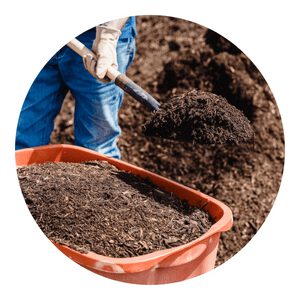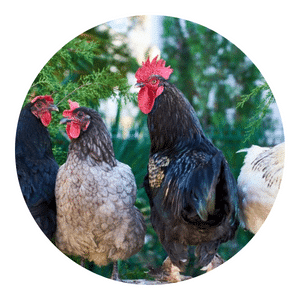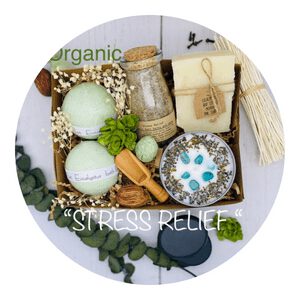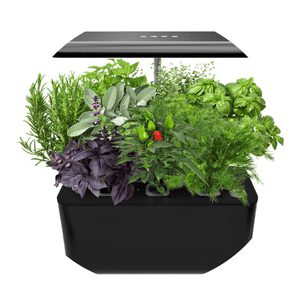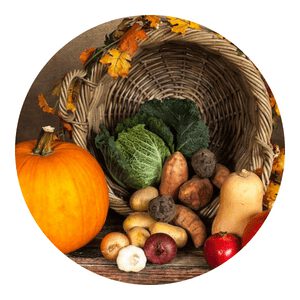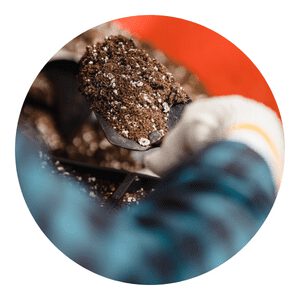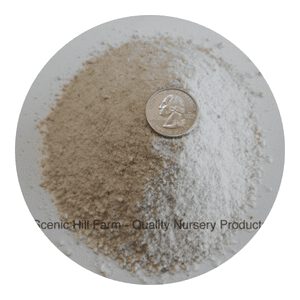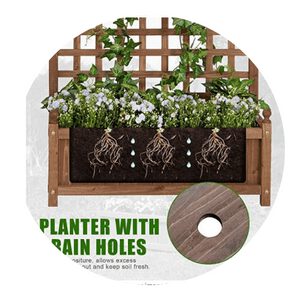Let's start Compost
Chappy the Gardener’s All About Compost Guide is a must-have for any gardener looking to create their own compost.
This guide provides step-by-step instructions on how to create and maintain a compost pile, as well as how to use compost in the garden.
Chappy the Gardener is a well-known name in the gardening world, and his guide is sure to be a valuable resource for anyone interested in creating their own compost.
With easy-to-follow instructions and plenty of helpful tips, Chappy’s guide is a great way to get started with composting.
Compost Menu
Composting is a way to recycle organic matter that would otherwise go to the landfill.
It helps improve the soil, reduces the load on local resources, and creates a valuable nutrient-rich fertilizer.
What is compost?
Compost is a mixture of decomposed organic matter, such as leaves, grass clippings, and vegetable scraps.
It is used as a natural fertilizer to help improve the soil’s ability to retain moisture and nutrients.
Compost also helps suppress plant diseases and pests.
Benefits of composting
Composting is the process of breaking down organic matter into a rich, dark, soil-like material that can be used to improve the quality of soil in your garden.
Composting is a great way to reduce the amount of waste going to landfill, and it’s also free!
By adding compost to your garden, you can improve the structure and fertility of the soil, and increase the yield of your plants.
Composting also helps to suppress plant diseases and pests.
How to compost
Composting is a natural process that helps turn organic matter into a rich soil amendment.
It is the perfect way to recycle kitchen scraps, garden waste and other organic materials.
By composting, you can reduce your household’s waste by up to 30 percent.
Collect organic waste
Organic waste, such as food scraps and lawn clippings, can be composted to create a valuable soil amendment.
Composting is easy and can be done in small or large quantities. The key is to create the right environment for bacteria and fungi to break down the organic material.
One way to make sure your compost pile is working properly is to ensure that it has a good mix of wet and dry materials.
The pile should be damp but not soaking wet. You can add water if needed, but don’t pour it on so heavily that it becomes a slushy mess.
A layer of brown material, such as dead leaves or shredded cardboard, at the bottom of the pile will help keep things moist and provide carbon for the bacteria to feed on.
compost is a gardener's guide, helping to make things grow, a black gold rich in minerals, feeds the soil and makes it thrive. it's not just good for plants, but helps keep pests at bay, forming a natural barrier, with compost you can't go wrong.
Chappy The Gardener
Add water and wait
When starting a compost pile, many people are unsure of how much and what type of water to add.
Adding too much or too little water can cause problems with the composting process.
The general rule is to add enough water so that the material is wet but not sopping wet.
If the compost pile is too wet, it will be difficult for air to circulate, and the decomposition process will be slowed down.
If the compost pile is too dry, it will be difficult for bacteria and other organisms to thrive, and the decomposition process will also be slowed down.
It is important to check the moisture level of your compost pile regularly and add water as needed.
You can tell if your compost pile is wet enough by squeezing a handful of material. If it forms a ball that stays together when you release it, then it is wet enough.
Turn the pile to aerate
Composting is the natural process of breaking down organic matter into a rich soil amendment.
Turning the pile to aerate helps speed up the composting process.
The composting process begins with aerobic bacteria, which need oxygen to thrive.
Turning the pile introduces air into the compost and helps keep the temperature evenly distributed, which encourages aerobic bacteria to grow.
Monitor the compost
Composting is the process of breaking down organic matter into a soil-like substance.
Not only is composting great for the environment, but it’s also a great way to reduce the amount of waste your household produces each year.
By monitoring your compost, you can ensure that it breaks down properly and produces healthy soil.
Use the compost
When it comes to gardening, there are a lot of different opinions on the best way to go about it. Some people swear by using chemical fertilizers, while others believe in only using organic methods. There is one school of thought, however, that is becoming more and more popular, and that is using compost as a soil amendment. Composting is a great way to recycle food scraps and yard waste, and it also makes your garden soil healthier.
Store the compost
Composting is an excellent way to reduce the amount of waste your household produces each year.
Not only does it help you divert organic material from the landfill, but composting can also create a valuable addition to your garden or landscaping.
If you’re new to composting, or just looking for ways to improve your process, consider these tips:
1. Store your compost in a designated spot. This will make it easier to add materials as they become available and to mix them together properly.
2. Use the right ingredients. The right combination of materials is essential for good compost. Start with brown materials such as dried leaves, twigs, or straw, then add green materials like kitchen scraps or fresh lawn clippings. Be sure to mix them together well so that the compost can break down properly.
3. Give it time.
What to compost
Organic waste accumulates every day in our homes. It is important to compost this organic waste to create a valuable resource for plants and gardens while reducing the amount of garbage sent to landfills.
Composting is the natural process of breaking down organic matter into a rich, black soil amendment.
Finished compost is an effective way to improve soil structure, water retention, and drainage. It also increases the levels of available nutrients in the soil.
Food scraps
Most people know that food scraps can be composted, but they might not know all the benefits of doing so.
Composting food scraps helps reduce the amount of waste that goes to landfills, and it also creates a valuable soil amendment.
In addition, composting helps to improve air quality and water quality.
Yard trimmings
Composting yard trimmings is a great way to reduce the amount of waste you produce each year and create a valuable soil amendment for your garden.
Yard trimmings are high in carbon and nitrogen, which make them an ideal composting material.
In addition to grass clippings and leaves, you can also compost fruit and vegetable scraps, coffee grounds, and eggshells.
Paper products
If you want to compost, paper products are a great place to start.
Paper towels, napkins, tissues, and cardboard can all be composted.
The best way to compost paper is to shred it into small pieces.
This will help it break down faster. You can add shredded paper to your compost pile or bin, or you can put it in a compostable bag and bury it in the soil.
Wood products
If you are looking for a new way to compost your organic waste, try using wood products.
Wood is an excellent carbon-based material for composting and it can help speed up the decomposition process.
In addition, adding wood to your compost pile will help improve the structure and porosity of the pile.
Animal waste
In the United States, the Environmental Protection Agency (EPA) estimates that each person produces nearly 4 pounds of waste per day.
That’s a lot of waste! Much of this waste can be composted, which is a process that turns organic matter into a rich soil amendment. Composting not only helps to reduce the amount of waste sent to landfills, it also creates a valuable resource for gardeners and farmers.
Animal manure is an excellent source of nitrogen, phosphorus, and potassium—nutrients that are essential for plant growth.
When added to compost piles, manure helps to speed up the decomposition process. In addition, composting animal manure reduces the amount of pollutants that can enter waterways.
There are many ways to compost animal manure. The most common method is to pile the manure in a designated area and let it decompose naturally.
Coffee grounds
Composting is a process that takes organic waste and converts it into a rich soil amendment.
In essence, you are creating your own natural fertilizer to use in your garden or landscaping.
There are many different materials that can be composted, but one of the most common and easily accessible is coffee grounds.
Coffee grounds are high in nitrogen, which helps to speed up the decomposition process, and they also add beneficial minerals to the compost pile.
Troubleshooting composting problems
Composting is a great way to reduce the amount of waste your household produces each year, and it can also provide you with a free source of nutrient-rich fertilizer for your garden.
However, composting can also be tricky business, and if you’re not careful, you may find yourself dealing with a composting disaster.
In this article, we’ll take a look at some common composting problems and their solutions.
What compost means?
Composting is the biological decomposition of organic matter into a humus-like material.
Compost can be used as a soil amendment to improve soil quality, tilth, and water retention.
It also increases the organic matter in the soil, which helps soils bind to nutrients, improving plant growth.
Is compost the same as soil?
Compost is often confused with soil, but they are not the same.
Compost is a nutrient-rich organic material that is created by the breakdown of organic matter. Soil, on the other hand, is a mixture of minerals and organic matter that supports plant life.
Compost can be added to soil to improve its quality, but it is important to remember that compost alone will not make good soil.
How to start composting?
Composting is an easy and affordable way to improve your soil and increase your garden’s yields.
Not only that, but composting can also help reduce the amount of waste you produce each year.
Here are a few tips to help you get started:
1. Choose the right spot for your compost pile. You’ll want to find a spot that gets plenty of sunlight and is accessible for adding materials throughout the year.
2. Collect food scraps and yard waste in a container until you have enough to start your compost pile. Be sure to avoid meat, dairy, and processed foods, as they can attract pests.
3. Create a basic pile structure by layering green materials (fresh leaves, grass clippings, fruit peels) with brown materials (dry leaves, twigs, cardboard boxes).
4.Dump in a pile or bin of food scraps and yard waste. Place a piece of cardboard over the top of your heap to keep flies and other pests out.
5. Turn the pile regularly using a pitchfork or shovel, adding new layers as you go along.
Composting is an easy and affordable way to improve your soil and increase your garden’s yields. Not only that, but composting can also help reduce the amount of waste you produce each year. Here are a few tips to help you get started:
1. Choose the right spot for your compost pile. You’ll want to find a spot that gets plenty of sunlight and is accessible for adding materials throughout the year.
2. Collect food scraps and yard waste in a container until you have enough to start your compost pile. Be sure to avoid meat, dairy, and processed foods, as they can attract pests.
3. Create a basic pile structure by layering green materials (fresh leaves, grass clippings, fruit peels) with brown materials (dry leaves, twigs, cardboard boxes).
4.Dump in a pile or bin of food scraps and yard waste. Place a piece of cardboard over the top of your heap to keep flies and other pests out.
5. Turn the pile regularly using a pitchfork or shovel, adding new layers as you go along.
How to maintain a compost pile?
Composting is a process of breaking down organic matter into a soil-like substance.
It’s a great way to recycle kitchen scraps, leaves, grass clippings and other yard waste.
Composting also helps improve the soil structure and fertility, and it’s free!
By following these simple steps, you can create your own compost pile in no time.
Tips for using compost
Composting is a great way to improve the quality of your soil and reduce your waste production.
Composting is the process of breaking down organic matter into a nutrient-rich soil amendment.
The best way to compost is to create a bin or pile where you can mix all of your organic materials together.
Here are some tips for creating and using compost:
1. Collect different types of organic materials to compost, such as food scraps, leaves, grass clippings, and wood chips.
2. If you have a lot of leaves or other large items, try chopping them up into smaller pieces with a lawn mower or by hand. This will help them break down faster.
3. Add water to your compost pile if it seems dry. This will help the microorganisms that break down the organic matter do their job.
What are the 3 main compost ingredients?
There are many different types of compost, but all of them have three main ingredients: green materials, brown materials, and water.
Green materials are things like fresh vegetables and fruits, grass clippings, and coffee grounds.
Brown materials are things like dried leaves, twigs, and cardboard.
The water helps the compost to break down the materials into a soil-like substance.
Can I plant directly into compost?
Compost is a great way to improve the quality of your soil, but can you plant directly into compost? The answer is yes, you can, and doing so has a number of benefits.
First, planting directly into compost saves time, because you don’t have to prepare the soil before planting.
Second, planting into compost helps to build up the organic matter in your soil, which improves its ability to retain water and nutrients.
Third, planting into compost helps to suppress weeds and diseases.
Finally, planting into compost returns nutrients to the soil that are essential for plant growth.
In conclusion, composting is a great way to recycle organic matter and improve your soil. It’s easy to do, and there are many different ways to compost.
If you have any questions about composting, please ask in the comments below.
Thank you for reading!
Click To Grow
Helps Us Grow – Share If You Like





